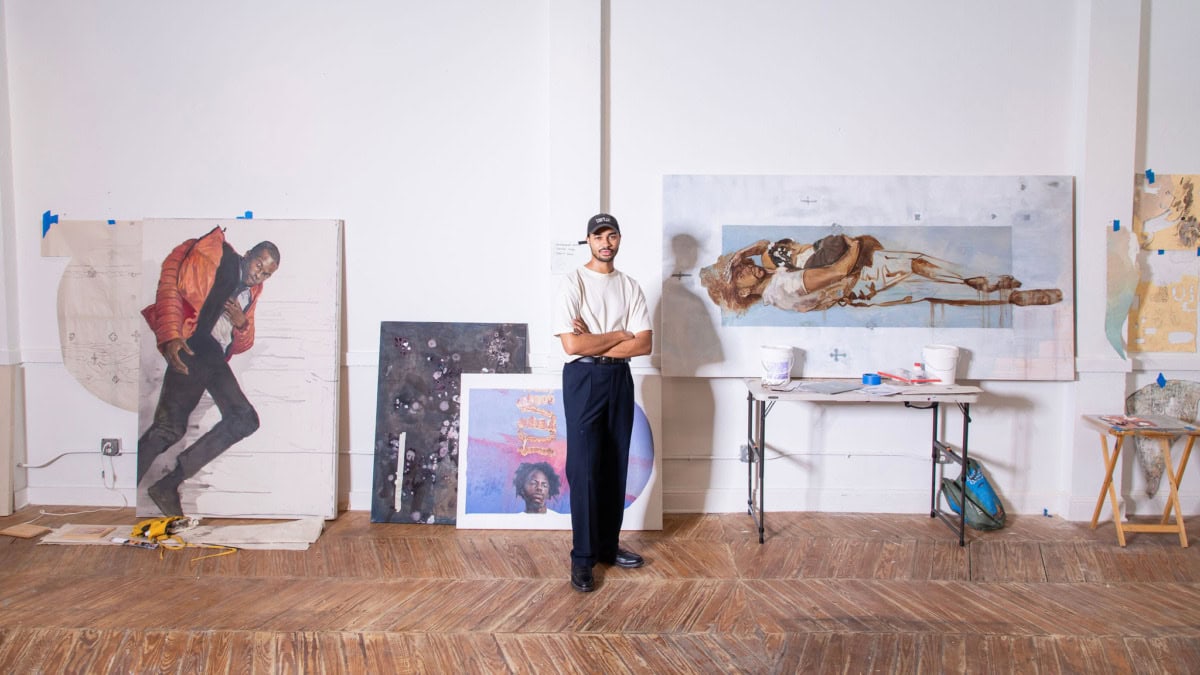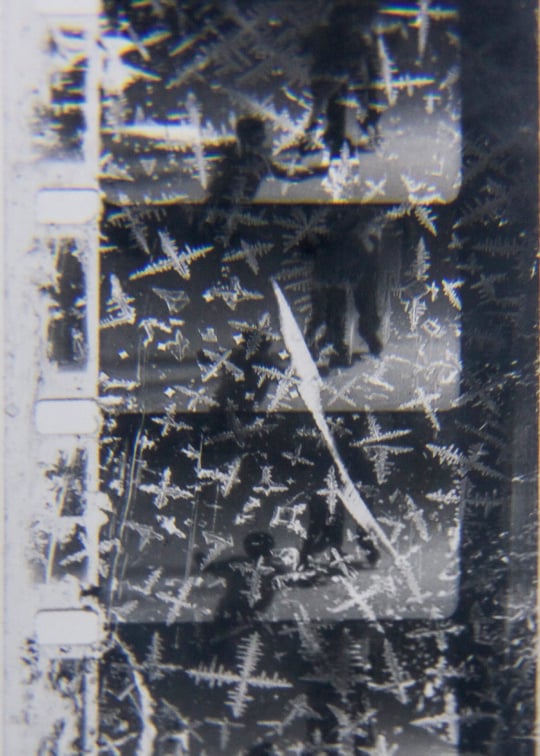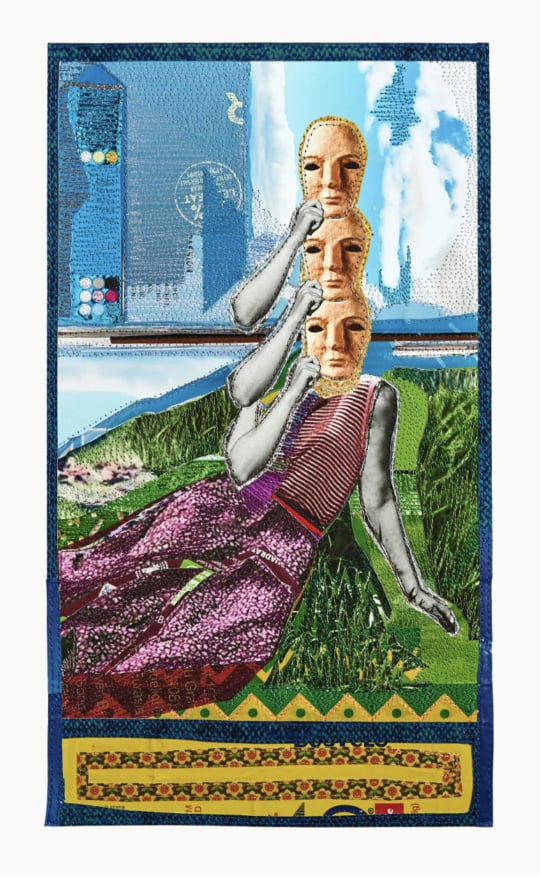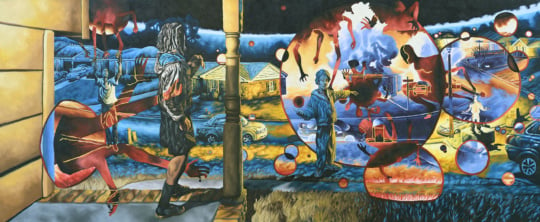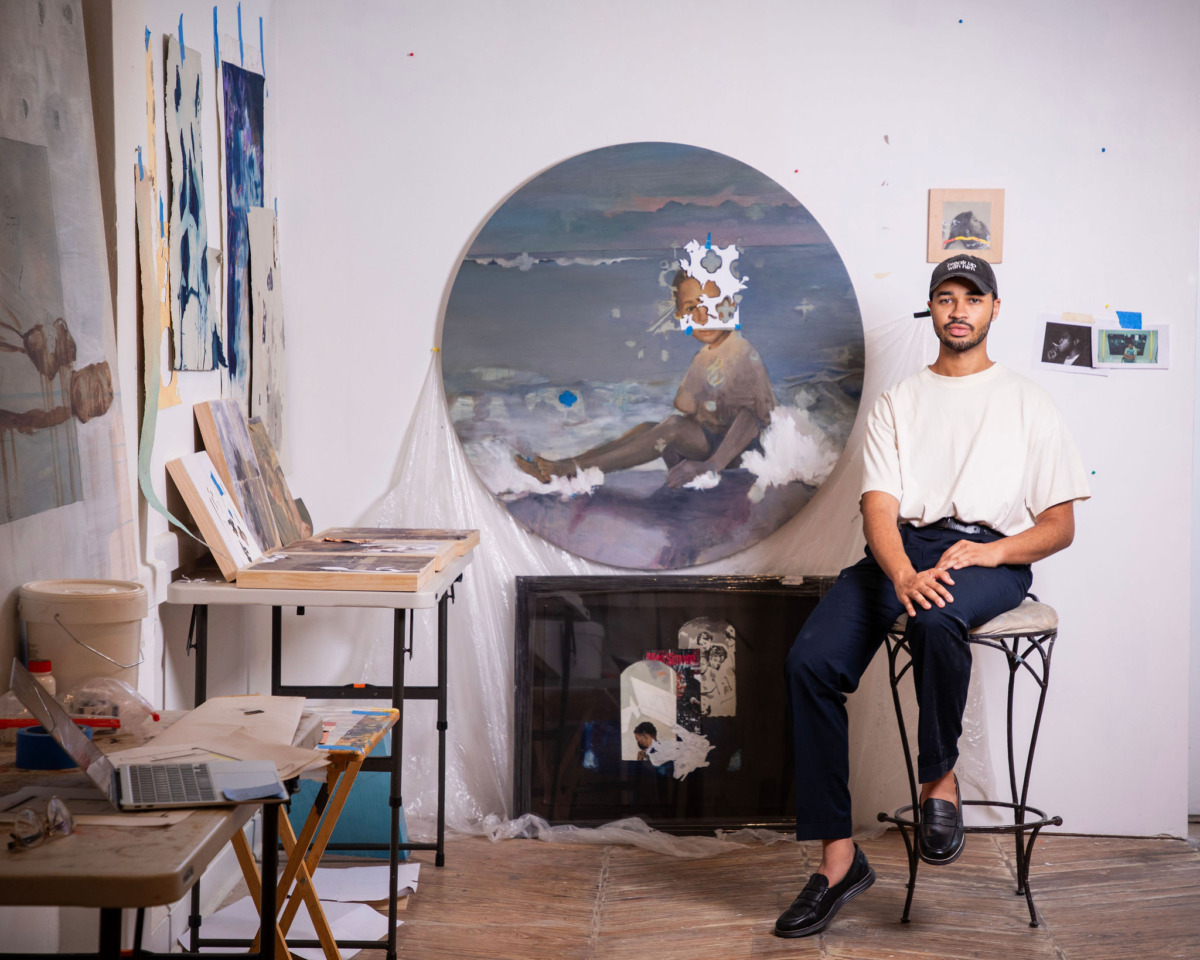
Demetri Burke’s studio is one half of what used to be a hair salon. It has faded tan hardwood arranged in a chevron pattern and is only interrupted by the occasional spot of paint, mirrored by a lofty but worn white ceiling. A skylight partially covered by a wind-tossed tarp feeds half a dozen plants resting atop a platform. The Atlanta-based mixed media artist welcomed me into his space on a frighteningly warm winter evening to discuss his art, his recent travels, and what it means to live as though you’re already an ancestor.
Thalia Butts: There are a lot of layers in your work. Some things or people are obscured in some works and those same shapes revealing things in other works. Can you tell me more about how you think about relationships between layers within a work as well as the relationships that exist between works
Demetri Burke: I like to make artwork in conversation with each other. I think about them sequentially or cerebrally, so they’re always talking to one another. Technique-wise, layering to me is just cool and important. I don’t want the surface to feel flat and I like the quality of collage or juxtaposition in general and how that can frame and tell a story.
I think there’s something interesting, and in some ways seductive in hiding something and revealing something. There’s something really alluring in that process. I consider what it means to be perceived, and what agency you have in that as the viewer, the artist, the painter, the audience because it’s a relationship that everybody’s having.
TB: What about yourself or your taste have you learned, realized, or been reminded about as you’re exploring these different themes in your work?
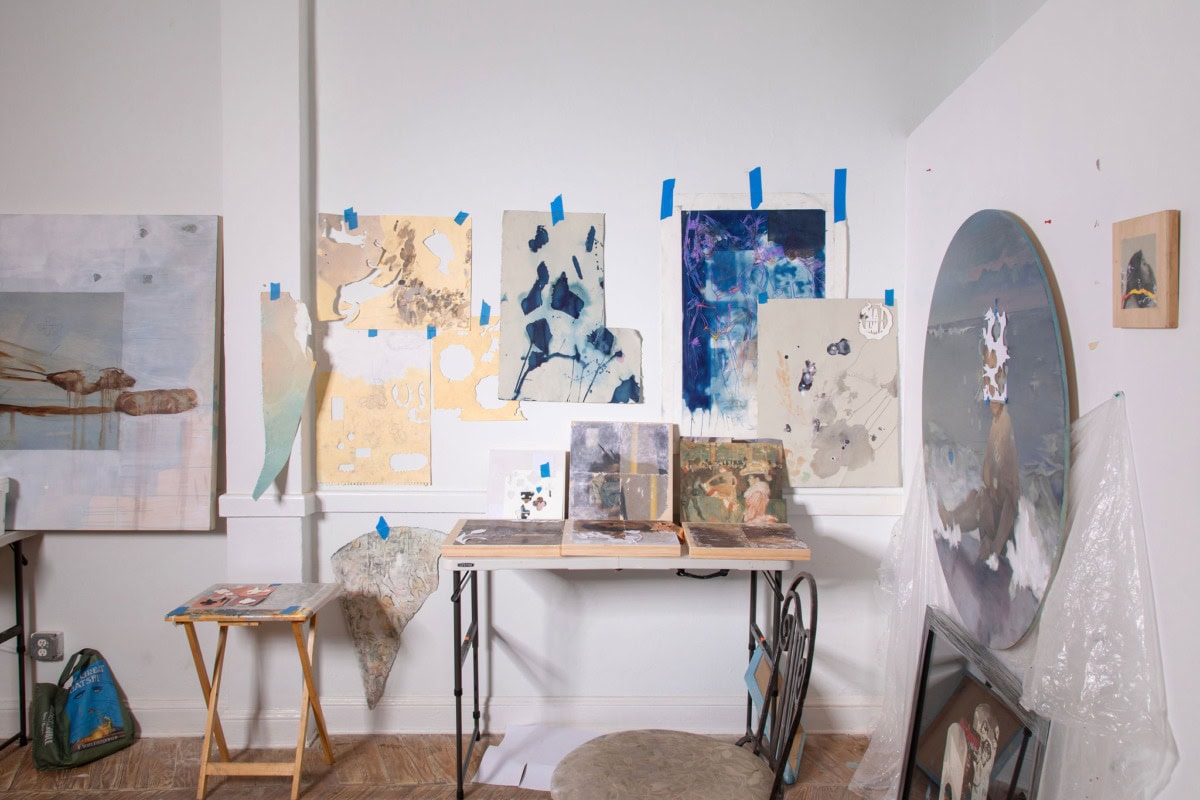
DB: A lot of this work I was looking at Winslow Homer, who is an American figurative painter. I think his work was around the 1800s and he explored a lot of the sea and these dramatic seascapes. The figures, whether they were in comfort, or stress, or in moments of great bravery or casualness, they’re just beautiful and confident. He had paintings of people being saved out of sinking ships and they just had a casualness to them.
He was a white painter and he also documented Black people at the time. There’s this painting of a Black figure cast away into sea and there was like this shark that’s floating by, and he just looks so casual and suave at the same time. I think there’s something really interesting about relaxation and sensuality in those reclining poses. I didn’t even realize who Winslow Homer was, but he’s a prominent figure. And then when I went to Arkansas, his name just kept getting brought up. Like people were saying, ‘My dissertation was on Winslow Homer.’ I went to Crystal Bridges Museum in Bentonville, Arkansas. They had some Winslow Homers. So, it was really interesting to see this work and then to be affirmed in the process.
TB: Quite a bit of your work centers on families, children, and parents as subjects. How do the concepts of family, Southernness, and connection relate to you and show up in your process?
DB: Traveling so much has made me realize how Southern I might be in the subliminal sense and [what it is like] to be raised in the greater Atlanta area. There’s an appreciation of that, and of the subtleness of showcasing characters, themes, and environments of the place I’m in, without it having too [many] big signifiers of “this” is specifically the South or “this” is specifically Atlanta. I like dropping hints of it in there and I appreciate it when people see that.
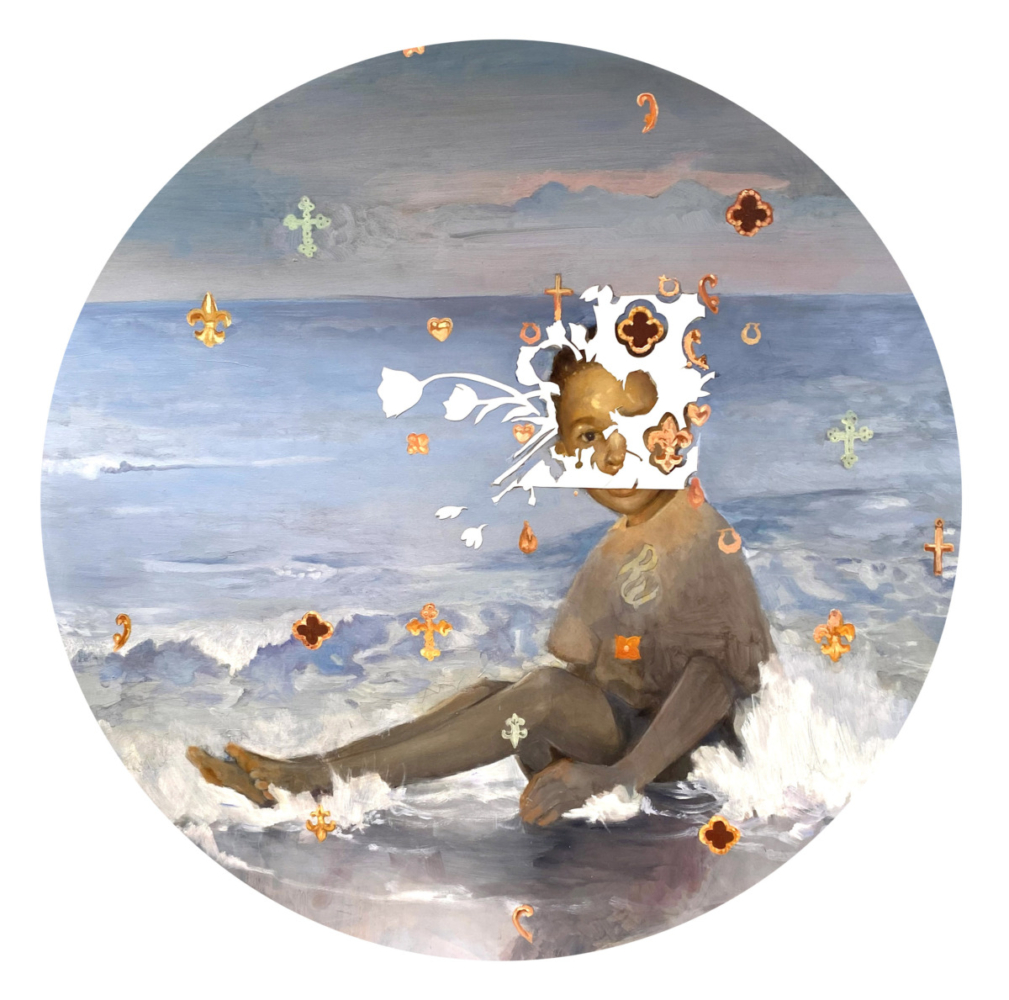
I feel like in American culture, there is definitely this spectacle of romance and of two people getting together and having a relationship. And there’s a lot of cool stories that you can make out of that. But when I was thinking about those works, I was also thinking about how complex familial relationships can be and that was really intriguing to me. All these figures were sovereign in a way. They were on their own journey, but they were all in the same room together.
TB: A large part of the conversation around family is legacy. What kind of legacy do you hope to leave through your artistry?
DB: Legacy has so much pressure on it, especially for groups of people like Black people in America. Our legacy has a history behind it that is kind of hard to retrieve at times. People had to figure out their own histories without having a legacy. So, I think it’s kind of cool and interesting for me to think about what’s going to happen now.
There is this cultural thing happening amongst like black portraiture, specifically black portraiture, where it is hyper-represented in a way where we have to question who’s viewing it, what are people getting out of it, and is the audience reflected in the actual work in itself. So, I think that’s like a question that I’m currently thinking about.
Being from Atlanta, which has had its own art practice outside of the mainstream fine art market, people make things in their own communities, in their own histories, and through their own ways of documenting. But who knows about legacy?
